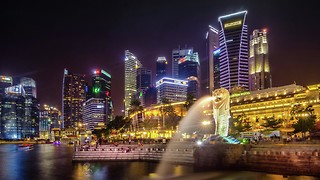The Life of Brian
has been staging a protest against the sufferings of Iraqis for six years and counting. sounds him out at the Haw outpost in Parliament Square.
Brian Haw is the most exhausting man I have ever met. If after reading this you decide to call on him at Parliament Square – his home and workplace – I suggest you set aside a couple of hours for the purpose of your visit. And do not walk into his camp under the naïve impression that you and he are going to have anything that resembles a conversation.
“I love all flowers, don’t you?” he says dreamily. “And wouldn’t it be bad if every flower was a yellow tulip or a red rose? Wouldn’t it be a boring world? Isn’t it beautiful to see all the different flowers?” I have just asked him why more students aren’t out protesting about Britain’s foreign policy in the Middle East. Varsity’s photographer looks on with unabashed schadenfreude.
Seven hundred hours devoted to debating fox hunting, seven hours devoted to debating war
Talking to Mr Haw is like talking to a loquacious brick wall; this may well be one of the reasons so many people see him as the voice of the anti-war movement. He may not show much concern for the input of others, but he can certainly talk. Six years of constant struggle for peace have left him angrily eloquent. Squatting outside his makeshift shelter – which offers a glorious view over the more glamorous turrets of Westminster Palace – I listen to a two-hour tirade in which he berates everything from the ban on soldiers’ blogs to child prostitution in Thailand.
His fury, interspersed with sprinklings of Christian rhetoric, gives him the demeanor of one of those terrifying preachers you try to avoid on the High Street. “Seven hundred hours devoted to debating fox hunting, seven hours devoted to debating war,” he rages. “Does that give you an idea about the sickness of Britain?’ He waves a hand at the Houses of Parliament, a cigarette wedged between two gnarled fingers. “They speak forever and ever in there, but they never speak about the issues that matter.”
Haw set up camp at Parliament Square in July 2001. His original focus was UN sanctions against Iraq, but the protest soon expanded to include British and American action in Iraq and Afghanistan. His commitment to the campaign is remarkable – ask anyone who claims to stand against the war in Iraq and the most they’ll probably have done is to sign a few petitions or march around London on a Saturday afternoon. Few would think about giving up their job, family and the comforts of indoor life to protest against events thousands of miles away.
Yet it is Haw’s fight to keep protesting rather than the protest itself for which he has grown famous. He first attracted media attention in October 2002 when an attempt to remove him by Westminster City Council sparked debate about free speech in Britain. Then his megaphone began to grate on the politicians. “The lives of members of staff are made intolerable by those people baying away, without a crowd to address, merely repeating themselves ad nauseam,” complained Patrick Cormack MP. The gripes of tetchy parliamentarians – combined with claims that permanent protests like Haw’s could be exploited by terrorists – resulted in certain provisions being added to the Serious Organized Crime and Police Act 2005. The new law banned all unlicensed protests within a 1km radius of Parliament Square. It was now an offence to protest or even to wear
an anti-Blair t-shirt without permission in an area that included Downing Street and the House of Commons.
The backlash to this was predictably huge. Commentators from all over the political spectrum condemned the Act as an infringement on people’s right to spontaneous protest. “They’ve turned this country into a fascist police state,” Haw declares. “Provided you mind your own business and keep your mouth shut, you’re fine. That lady over there” he nods at a fat woman wielding a pink placard - “is attacked by the police for being in a public place. The only thing that sets her apart from everyone else is that she has a banner. Should that be a reason to attack her violently?” He is scornful when I half-heartedly suggest there might be some substance to the concerns over security. “Frightened of someone putting a bomb here? he snorts. “It’s all bollocks.”
If you want to be a real Christian, be prepared to be crucified
Haw was granted permission to remain at Parliament Square, on the condition that he reduced his sprawling display of battered placards. When he refused to comply, the police launched an elaborate night-time operation to remove the display. A court has now ruled that the conditions imposed on Haw were unlawful, but the display – including a valuable placard by legendary graffiti artist Banksy – remains in police possession. “I’m taking them to court on that one,” says Haw. “Police shouldn’t steal, should they?”
The current barricade is a shadow of its former tattered glory, but a replica of the original survives in the form of artist Mark Wallinger’s installation, State Britain. Harrowing photographs of children horribly disfigured by depleted uranium, placards bearing zealous captions (“Christ Is Risen Indeed!”) and lines of grim-looking, paint-splattered children’s t-shirts have all been meticulously recreated by Wallinger. The exhibition was viewed by thousands at the Tate Britain and Wallinger has been nominated for this year’s Turner Prize for the piece.
If he needed further confirmation of public recognition, it arrived in the form of the 2007 Channel Four Political Awards, where he beat Tony Blair and David Cameron to be named Britain’s Most Inspiring Political Figure. While clearly pleased by all the publicity, Haw claims that celebrity status sometimes detracts attention from the real matter at hand.
“Everybody wants to know where I sleep, what I do when it rains, where I go to the toilet,” he fumes. (I hurriedly cover my list of questions about where he sleeps, what he does when it rains and where he goes to the toilet.) “Meanwhile the kids don’t have clean water. They don’t have food. And they’re dying like flies.”
I have still not decided whether Haw is a saint or a nutcase. He is incoherent, exasperating, quite possibly unhinged – but his courage is unquestionable. The protest has cost him his marriage and regular contact with his seven children. He has been washing in a bucket, sleeping under a tarpaulin and surviving on food donated by supporters for over seven years. And support for his work has by no means been universal – Haw has been assaulted numerous times by ill-wishers, and had his nose broken twice. “Some people will say it goes with the turf,” he shrugs. “If you want to be a real Christian, be prepared to be crucified.”
I ask, in a very roundabout way, whether he ever thinks the impact of his work might outweigh the sacrifices he has made. He is quick to justify his decisions. “Would I give up seven beautiful, wonderful children?” he snaps. “Would I give up the best lady in the world? I’m here because of my child. I’m here because of my neighbour’s child.” He lights another cigarette. The sun glints on his badge-covered hat. “I’m here because I’m a Christian, and a father, and a human being. And somebody who voted for Mr Blair,” he adds, “which makes me especially responsible, doesn’t it?”
Katy Lee
 News / Students form new left-wing society in criticism of CULC3 September 2025
News / Students form new left-wing society in criticism of CULC3 September 2025 News / Tompkins Table 2025: Trinity widens gap on Christ’s19 August 2025
News / Tompkins Table 2025: Trinity widens gap on Christ’s19 August 2025 News / Cambridge’s tallest building restored to former glory1 September 2025
News / Cambridge’s tallest building restored to former glory1 September 2025 News / Council rejects Wolfson’s planned expansion28 August 2025
News / Council rejects Wolfson’s planned expansion28 August 2025 Interviews / GK Barry’s journey from Revs to Reality TV31 August 2025
Interviews / GK Barry’s journey from Revs to Reality TV31 August 2025








